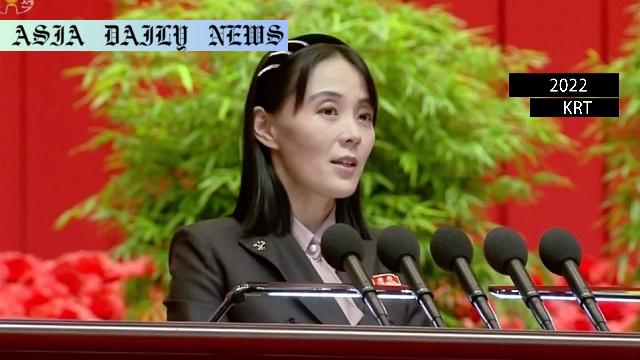North Korea-US Talks: Fresh discussions possible but contingent on nuclear conditions.
- North Korea is open to possible talks with the US under specific conditions.
- Kim Yo Jong emphasized North Korea’s irreversible stance on nuclear weapons.
- The potential for discussions reflects challenging diplomatic realities between the nations.

Introduction: The Current State of North Korea-US Relations
The possibility of future summit discussions between North Korea and the United States has gained attention due to recent remarks by Kim Yo Jong, the influential sister of North Korean leader Kim Jong Un. While she suggested that talks might occur, her statement underscored strict conditions and showcased North Korea’s unwavering stance on its nuclear weapons program. This development comes in the wake of previous attempts at diplomacy under former US President Donald Trump that failed to yield lasting agreements.
North Korea’s Firm Stance on Nuclear Weapons
Kim Yo Jong made it abundantly clear that North Korea’s position as a nuclear-armed state is irreversible. This declaration signifies that any future talks with the US would not involve denuclearization—one of Washington’s core demands. Instead, negotiations would need to consider North Korea’s security concerns and status as a nuclear power. This condition reflects Pyongyang’s view that its nuclear arsenal is essential for survival amid perceived threats from external powers.
The Potential for Diplomatic Engagement
Despite the firm rhetoric, Kim Yo Jong’s remarks hinted at a sliver of opportunity for diplomacy. She noted that confrontation between two nuclear-armed states is disadvantageous and suggested that better relations might be achievable under certain terms. However, critics argue that North Korea’s conditions, particularly its refusal to discuss denuclearization, pose significant obstacles to successful dialogue.
Historical Context: US-North Korea Relations Under Trump
During Donald Trump’s presidency, the US and North Korea held three high-profile summits aimed at addressing the nuclear weapons issue. While these meetings represented a historic thaw in relations, they ultimately fell short of reaching substantial agreements. Trump’s willingness to meet Kim Jong Un again underscores the complex, high-stakes nature of negotiations with North Korea, which remains a focal point of US foreign policy in the Asia-Pacific region.
The Way Forward for US-North Korea Talks
Moving forward, any discussions between North Korea and the United States will require significant diplomatic skill and mutual compromise. Pyongyang’s demand for recognition as a nuclear state is unlikely to align with Washington’s aim of complete denuclearization. However, a middle ground that addresses both parties’ concerns could pave the way for incremental progress. Building trust, reducing regional tensions, and addressing humanitarian issues might serve as initial steps toward meaningful dialogue.



Commentary
The Complex Dynamics of North Korea-US Diplomacy
North Korea’s latest overtures toward the US reflect both hope and skepticism. Kim Yo Jong’s acknowledgment of the importance of avoiding confrontation between nuclear states is an intriguing remark, suggesting that North Korea recognizes the precariousness of its position. However, her firm stance that denuclearization is off the table highlights a major barrier to progress. For the US, accepting North Korea’s nuclear status could be seen as a departure from longstanding policy, yet it may be the only way to engage meaningfully with Pyongyang.
Historical Lessons and Their Implications
The history of US-North Korea relations underlines the difficulty of achieving durable agreements. While Donald Trump’s summits with Kim Jong Un set a precedent for high-level engagement, they also revealed the limits of personal diplomacy without substantive groundwork. Any future talks will require not just symbolic gestures but practical solutions that address security concerns on both sides.
Opportunities Amid Challenges
Despite the challenges, the possibility of renewed talks presents an opportunity to reduce tensions in the region. Addressing underlying issues such as economic sanctions and humanitarian aid could serve as a starting point for larger discussions. The US and its allies must carefully balance pressure tactics with incentives to create an atmosphere conducive to negotiation.